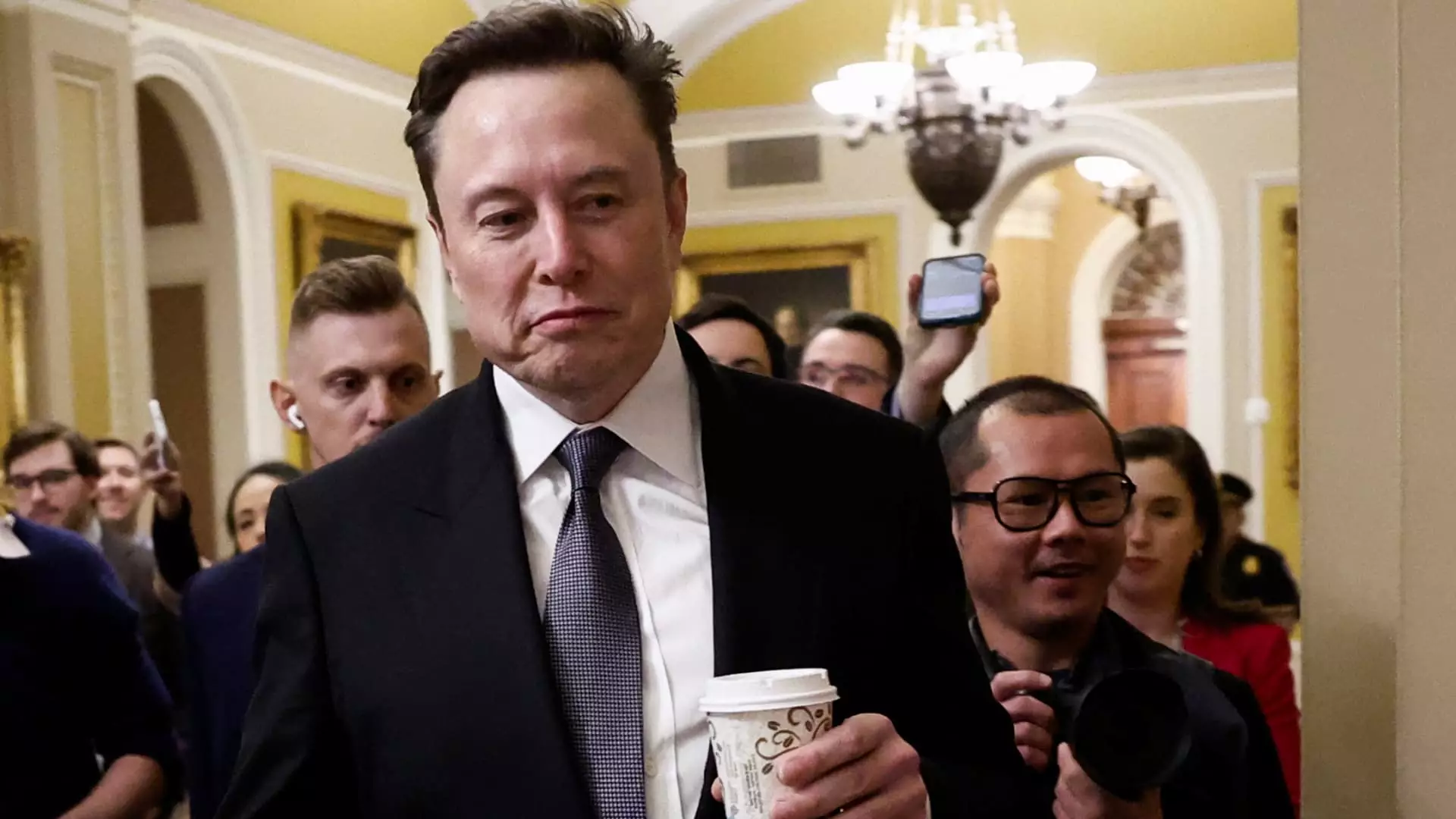In the high-stakes arena of U.S. politics, few individuals have managed to navigate the intersection of business and governance as skillfully as Elon Musk. The ongoing dialogues and disputes surrounding federal funding have revealed a deepening rift between House Democrats and their Republican counterparts, who have been accused of capitulating to Musk’s influence over Congressional decisions. This dynamic raises troubling questions about the extent to which powerful corporate figures can sway legislative outcomes, particularly concerning issues critical to national security.
Musk, the CEO of Tesla and SpaceX, has carved out a unique position in American politics by leveraging his economic clout as one of the wealthiest individuals globally. Recent events unfolded when House Democrats, led by representatives Jim McGovern of Massachusetts and Rosa DeLauro of Connecticut, expressed their outrage over a bipartisan funding bill that was reportedly hindered due to Musk’s lobbying efforts. This legislation, if passed, would have placed stricter regulations on U.S. investments in China, a move seen as crucial given the rapid technological advancements and competitive threats posed by the nation.
The Democrats argued that the failure to advance this critical piece of legislation was a concession to Musk, who has significant business interests in China. McGovern highlighted how the cancellation of the funding bill limited America’s ability to protect cutting-edge technologies such as artificial intelligence and quantum computing. By undermining the regulation of U.S. investments, Congress may inadvertently be accelerating the transfer of critical intellectual assets to a potential competitor, thereby compromising national security.
Additionally, Musk’s endeavors to expand Tesla’s footprint in China, particularly his new battery plant near Shanghai, have come under scrutiny. Critics are concerned that his motivations may be rooted in maintaining favorable relations with Chinese authorities, which could put U.S. technological advancements at risk. The question then arises: Is Musk prioritizing his corporate interests over the broader implications for U.S. national security?
The fallout from the scrapped funding bill extends beyond simple policy disagreements; it reflects the complex web of interactions between tech giants and legislative processes. DeLauro’s correspondence to Congress pointed out the precarious position in which Musk places American interests. Her allusion to Musk as “President” in her communications underscores the belief that his substantial contributions to political campaigns have elevated his influence to unprecedented levels within the Republican Party.
Musk’s dissent against the proposed legislation gathered momentum after the former President expressed his desire for a new funding bill that would circumvent the challenges presented by the existing debt limit. The pushback from Musk and Trump saw them aligning interests that appear to diverge from those of many lawmakers focused on maintaining the integrity of American technological advancements.
Even as the bipartisan funding bill was sidelined, Musk did not escape criticism. His response to DeLauro’s concerns—branding her an “awful creature” on social media—exemplified the contentious relationship he maintains with various political figures. Such exchanges provoke discussions about civility in political discourse but also serve as a reminder of Musk’s volatile personality and disregard for traditional political decorum.
What becomes evident from this episode is the increasingly blurred lines between technological innovation, international investment, and government oversight. As the global landscape evolves, American policymakers must grapple with the challenge of regulating technology without stifling innovation. The implications of failing to address these concerns could resonate through the economy and the fabric of national security.
The intertwining of Musk’s business ambitions with U.S. foreign policy raises alarms about the extent to which private corporations can influence government legislation and international relations. It is essential for lawmakers to strike a balance between fostering innovation and safeguarding national interests. As the tech sector continues to flourish, the importance of transparent conflict-of-interest boundaries grows ever more crucial.
As the narrative of Musk’s influence over Congress unfolds, it serves as a cautionary tale. The necessity for vigilant congressional oversight has never been more apparent, especially in preserving the integrity of national security against the backdrop of burgeoning technological prowess and international competition. As Americans look to the future, the implications of this crisis may well define the relationship between government and industry for years to come.

